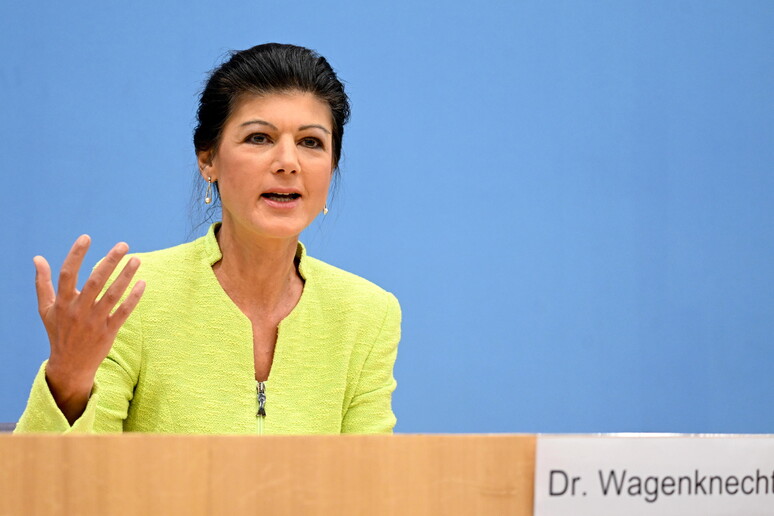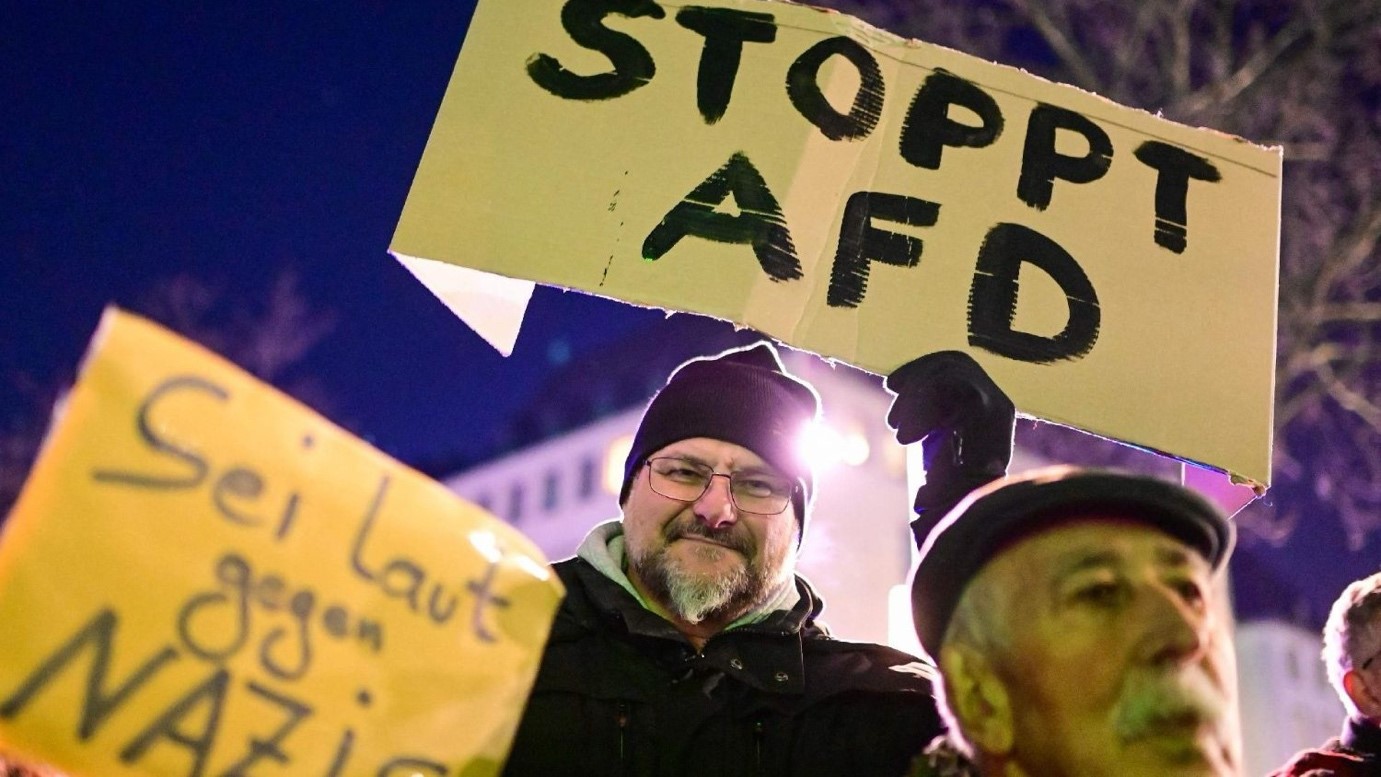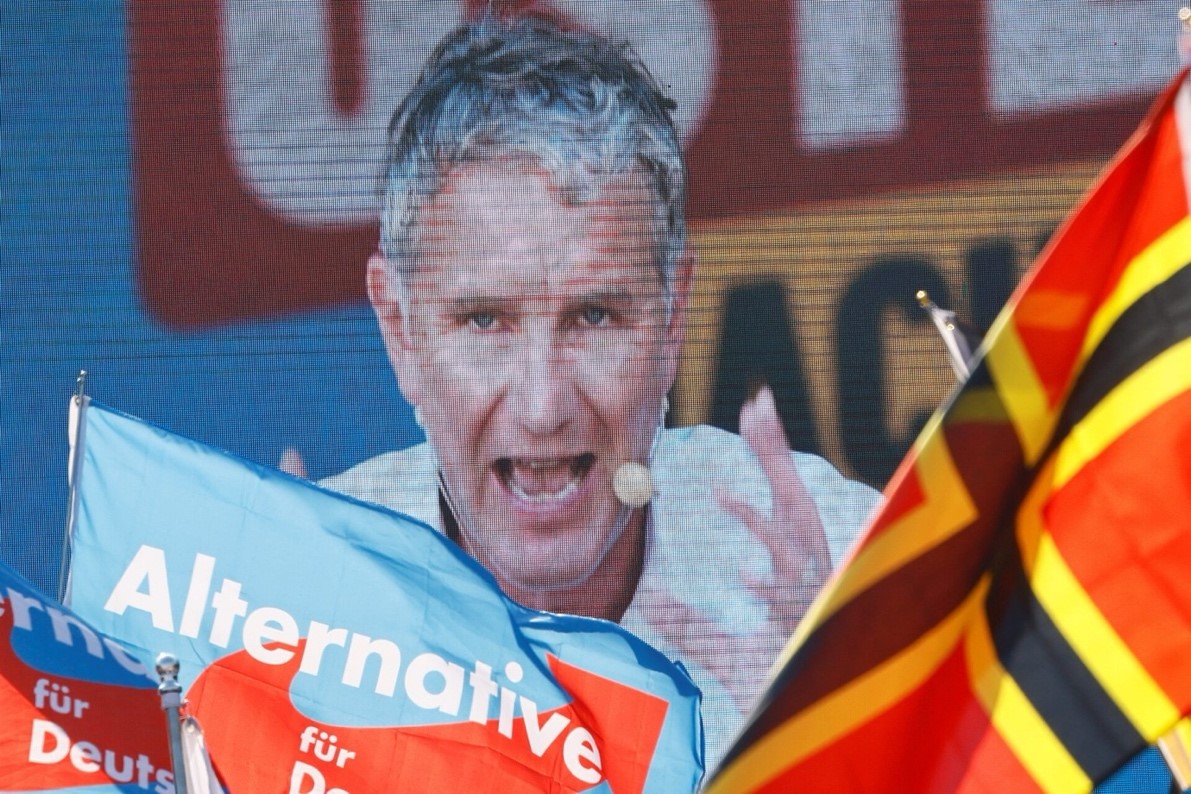By Vera Rodriguez,
The recent elections in East Germany have sent shockwaves through the political landscape, signaling a dramatic shift in voter allegiances and priorities. In states like Thuringia and Saxony, traditional political powerhouses such as the Christian Democrats (CDU) and Social Democrats (SPD) have lost support. Meanwhile, populist movements have been tapping into deep-rooted frustrations. The far-right Alternative für Deutschland (AfD) won the election in Thuringia, securing 33% of the vote. The recently founded left-wing party Bündnis Sahra Wagenknecht (BSW) was third, with 15.8% vote. These results show the entering of the far-right into the mainstream, as well as the proliferation of its narratives.
Even though both AfD and BSW seem to be on opposite sides of the political spectrum, they promote similar social policies focused on anti-migration, anti-environment, and nationalism. First, the AfD platform initially focused on the economy but shifted to immigration after 2015. Since then, the party has embraced anti-muslim and xenophobic rhetoric. For instance, their 2016 manifesto read, “Islam does not belong to Germany”. Furthermore, they have also shown support for anti-environment policies and advocated for a cease of military aid to Ukraine.

Meanwhile, a former Die Linke politician, Sahra Wagenknecht, leads the BSW. Her mixed redistributive economic policies with more conservative social takes have garnered her support, even from far-right party supporters. She often speaks about how other left parties have loosened up on migration and have given in excessively to environmental policies. Moreover, she strongly advocates for fostering a diplomatic relationship with Russia and ending military aid to Ukraine. She has also spoken against easily changing one’s legal gender. Summing it up, with her policies, she wants to promote “traditions, stability and security”.
Therefore, these two parties are strangely alike. This resemblance is not due to an “extreme touch” phenomenon —they do not and are not touching here. Instead, they reflect a Far-right Zeitgeist in East Germany and many European democracies. The term Zeitgeist, originally German, can be translated as “time spirit”. It describes a historical period’s general ideas, beliefs, and feelings. Thus, AfD’s victory and BSW’s popularity could be symptomatic of a time spirit of far-right ideas.

This normalization is comprised of two clear trends that feed each other. On the one hand, the increasing popularity of the far-right. On the other, the rest of the mainstream parties’ response to it. First, the rise of the AfD coincides with a far-right/radical-right wave in the EU. Examples include France’s Rassemblement National, Spain’s Vox, the Netherlands’s PVV, Italy’s Fratelli di Italia, and the list could go on. Second, fearing these platform’s success, many traditional political parties decide to partially incorporate similar issues into their agenda. In doing so, they hope to contain the rise of these far-right alternatives by directly gathering their voters’ support. For instance, Olaf Scholz’s discourse shift promised an increase in the deportation of migrants. The same phenomenon is observed abroad; Spain’s Prime Minister, Pedro Sanchez, calling for the same thing in recent speeches.
Although the intention of these parties is to prevent far-right success, mainstream adoption of part of their core issues shifts public debate to their favor. Thus, progressively modeling what is deemed acceptable in public debate. In other words, giving in to far-right discourse only reinforces it. That is why previous taboos, such as questioning asylum seekers and their integration into society, are now common in public opinion. In fact, this strategy could explain the popularity of BSW. Although claiming to be left-wing, their agenda shares much of AfD’s conservative framing.
As a conclusion, East Germany’s elections results point to a far-right zeitgeist. The window of normality that once included globalism, openness, and the European Union has moved. Now, it has veered to anti-refugee and anti-immigrant sentiment, anti-environmentalism, and questioning LGBTQ+ and women’s rights. The normalization of these issues is looming over many European democracies. It is no coincidence that far-right parties rose after the 2008-09 financial and 2015 humanitarian crises. They make these topics central in their agendas, capitalizing off of voters’ concerns over their material stability. Moderate traditional parties have failed to contain the rise of these movements, and have fallen victims to their narratives. If they do not change their strategy, they will either transform in what they seek to combat or die replaced by other parties. And with that, our democracies could suffer greatly, too.
References
- 5 takeaways from Germany’s eastern elections. POLITICO. Available here
- Nerves rise over AfD threat as state elections in eastern Germany begin. The Guardian. Available here
- Bündnis Sahra Wagenknecht (BSW): Left-Wing Authoritarian—and Populist? An Empirical Analysis. Politische Vierteljahresschrif. Available here
- The Party That Could Shake Up German Politics. FP. Available here
- The dangerous resurgence of Germany’s far right, explained. VOX. Available here
- Is Germany’s rising superstar so far left she’s far right? POLITICO. Available here
- The opening of Europe’s Overton window. BROOKINGS. Available here
- Overview of the Far-Right. CREST. Available here
- The Populist Zeitgeist. Cambridge University Press. Available here
- Völker, T., & Saldivia Gonzatti, D. (2024). “Discourse Networks of the Far Right: How Far-Right Actors Become Mainstream in Public Debates”. Political Communication, 41(3), 353-372




